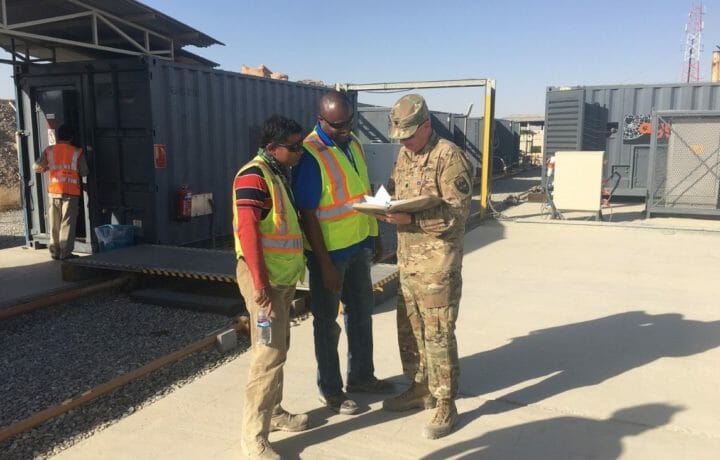One advantages American forces has enjoyed during the duration of Operation Enduring Freedom was air superiority. Running convoys in Afghanistan there was always a level of comfort that we never had to worry about the sounds from helicopters or jets overhead. And when we found ourselves pinned down or in need of extra support, our unit was lucky that every time we asked, air support was provided. But the Afghan government forces could very quickly lose the one advantage they have over the Taliban and Al Qaeda. Air power.
U.S. Contractors Offer Afghan the Advantage
With the U.S. leaving, the Afghan military now must take full charge of the air support it relied on both in surveillance and airpower with the added support required to maintain the fleet that allows both of those tactical advantages to take place.
Gen Yasin Zia, the Afghan army’s chief of staff and acting defense minister said, “We have created this capacity to defend our soldiers and bases moving from one area to another. We put all the elements, all the players together to do this concept: ‘Find, fix, finish.’”
But without the U.S. can they really do that?
Without the support of the roughly 18,000 U.S.-funded contractors that have worked to help repair and maintain the Afghan governments fleet of aircraft, armored vehicles, and other tactical gear and equipment, the Afghan security forces will likely lose the advantage they have enjoyed. Within the next few weeks, the contractors along with most of the U.S. military and their NATO allies leaving Afghanistan.
And one of the many questions is what will happen next. An analysis from a recent DoD inspector general’s report determined it is unclear how without the help of U.S. contractors the Afghan forces will have the ability to keep dozens of fighter planes, cargo aircraft, U.S. made helicopters and drones flying for more than a few months.
White House Response
The Biden administration officials say the threat from Al Qaeda, “has been sharply reduced since the invasion in 2001” and they believe they can keep tabs on militant groups from afar. They believe if a threat of a terrorist attack is detected, the Pentagon or CIA could strike inside Afghanistan as needed.
“We will maintain an over-the-horizon capability to suppress future threats to the homeland,” said Biden in his weekly press briefing on May 19, 2021. He also mentioned other countries that militant threats exist outside of Afghanistan.
But even with those reassurances, the fear of the Afghan military losing air power and being over taken by the militant groups is one of the biggest fears that could change the course of everything. Former Army officer and Black Hawk helicopter pilot, Bradley Bowman, who served in Afghanistan said to NBC News, “ If we don’t help them maintain those aircraft, then the Afghan security forces will be deprived of that advantage, and that could have a decisive impact on the battlefield and ultimately the state of the Afghan government.” Close air support has historically tipped the scales for Afghan security forces when battling the Taliban. Without the ability to maintain the fleet of aircrafts it has, the Afghan military will be stuck not only because they are losing air superiority but also because they are losing the ability to move freely on the ground.
Unanswered Questions
With so many questions unanswered on how the Afghan government will be able to maintain their current fleet, there is a lot of bipartisan criticism about the troop withdrawal. The American public is frustrated that we have been in Afghanistan for over twenty years, but without all these questions answered, it may lead to more problems than we have solved. Former CIA Director Leon Panetta said at an event last week. “Right now, the appearance of it is that since we didn’t have a plan, we basically have said, ‘To hell with Afghanistan.’” After so many Americans sacrificed so much in Afghanistan, it is hard to watch the end come with so many open questions about what will happen to Afghanistan once the U.S. and its allies leave.


